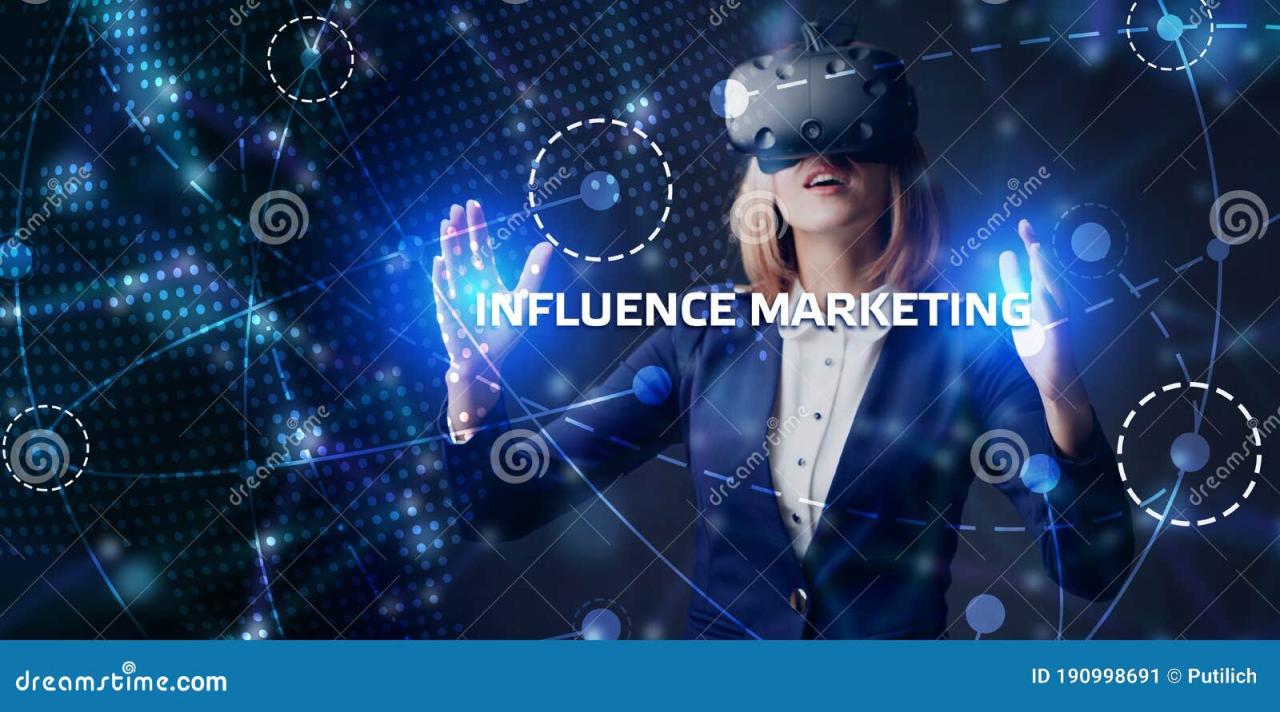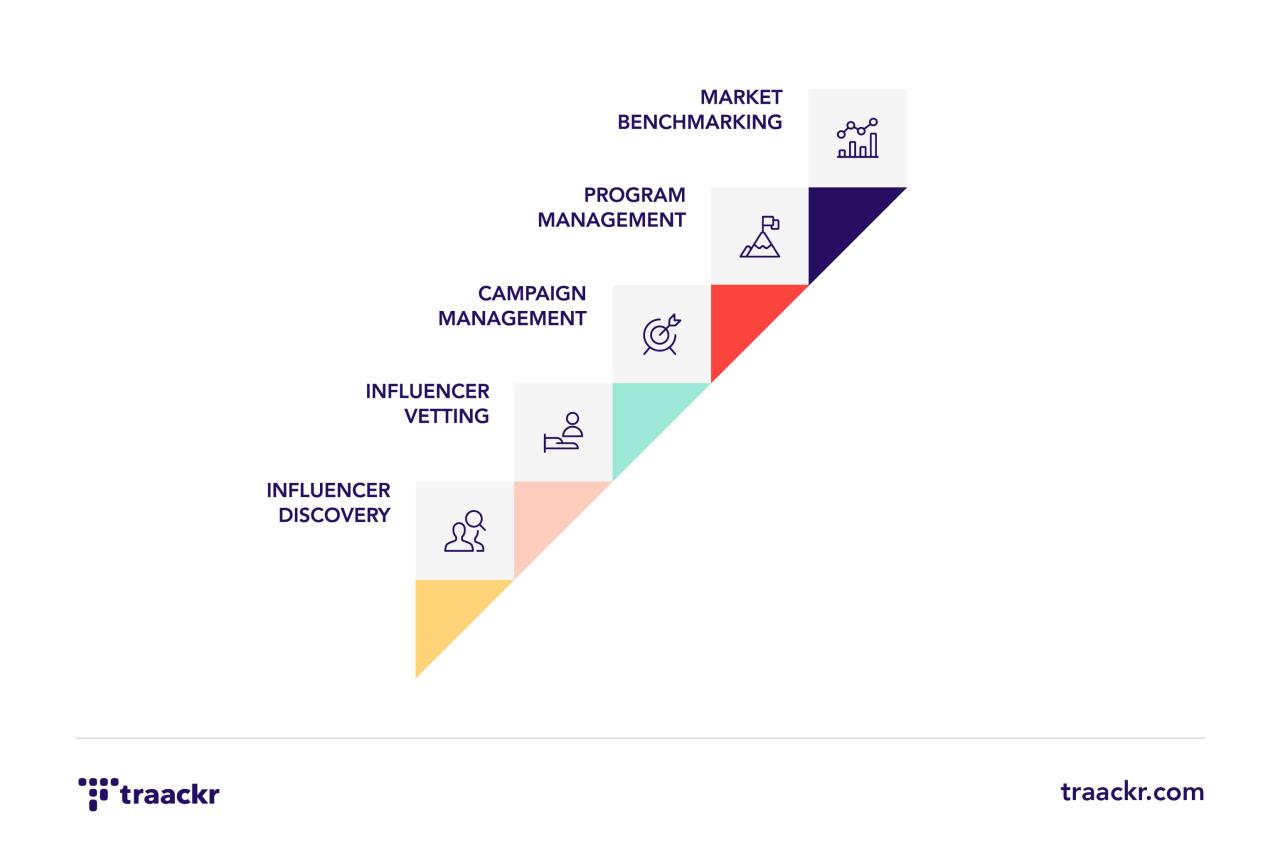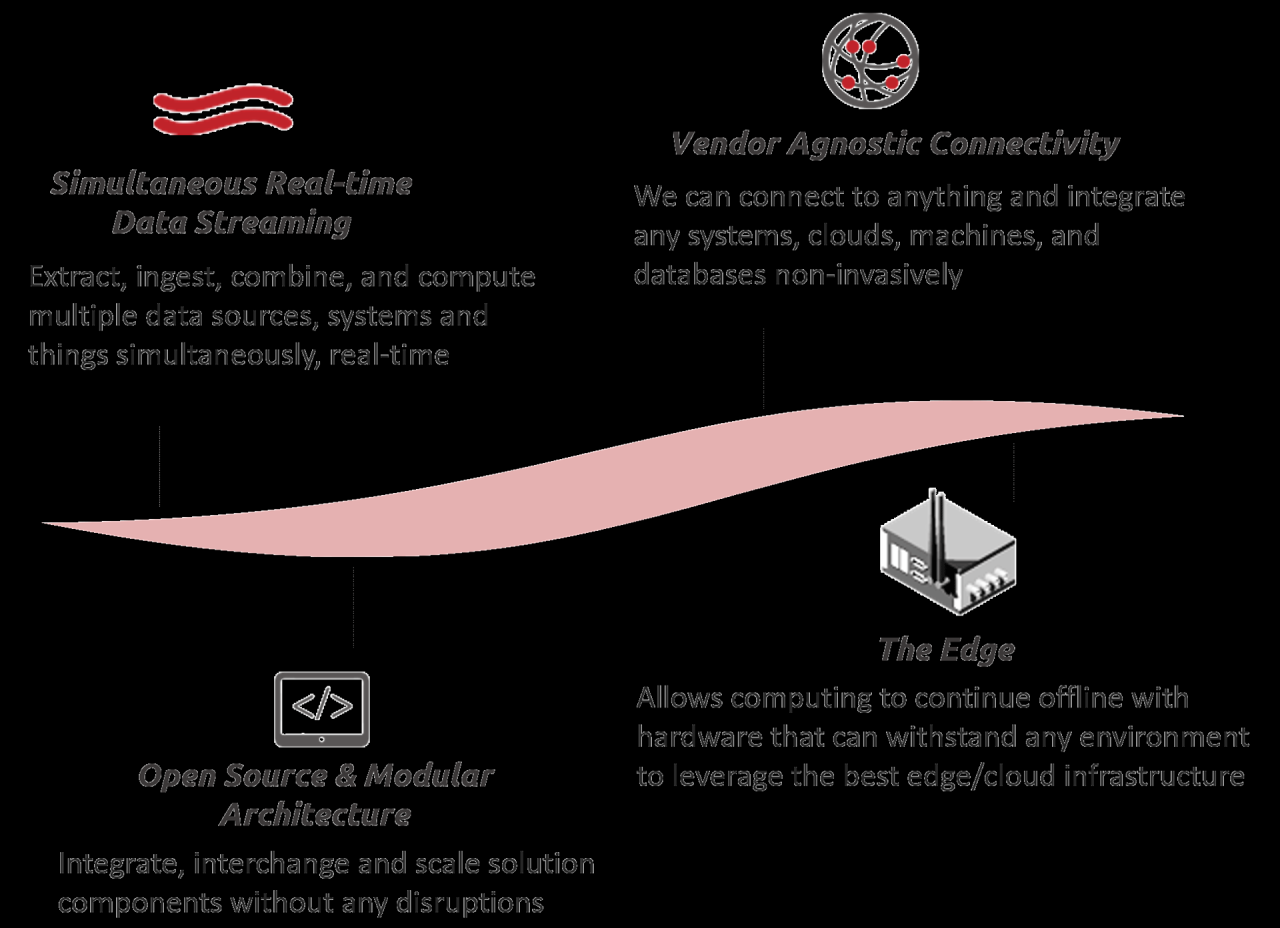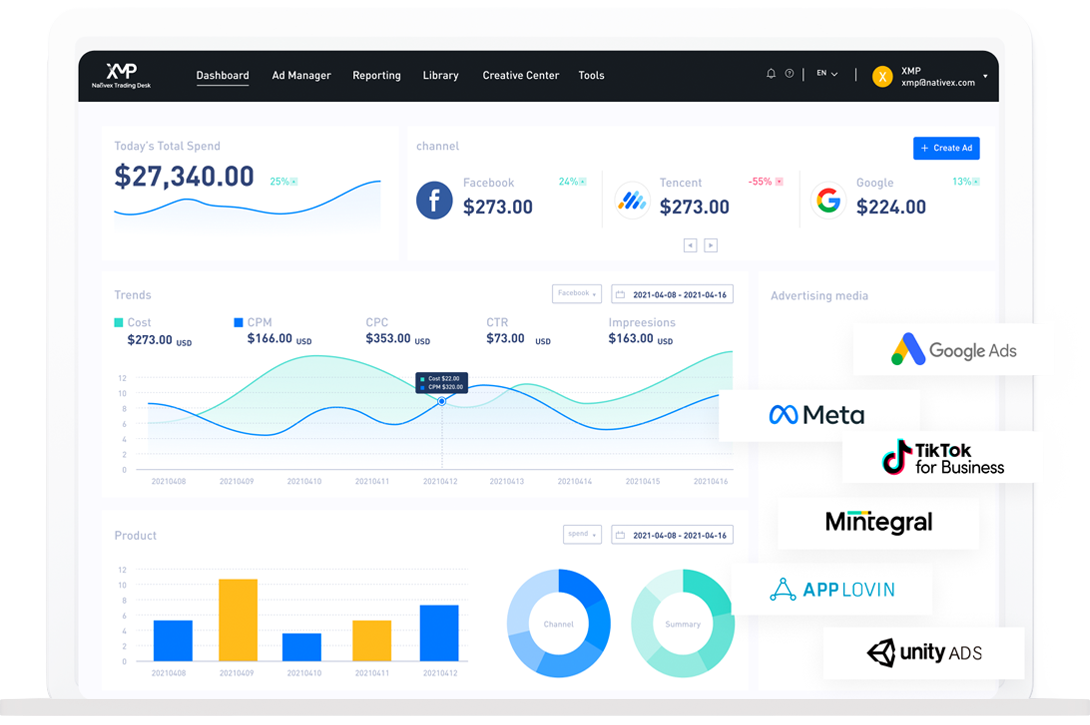Influencer Technology: Shaping the Future of Marketing
Influencer technology has revolutionized the way brands connect with consumers, ushering in a new era of digital marketing. From influencer marketing platforms that streamline campaign management to sophisticated analytics tools […]

Influencer technology has revolutionized the way brands connect with consumers, ushering in a new era of digital marketing. From influencer marketing platforms that streamline campaign management to sophisticated analytics tools that measure campaign performance, influencer technology empowers both brands and influencers to achieve their goals more effectively.
This technology has transformed the influencer marketing landscape, enabling brands to reach wider audiences, build stronger relationships with influencers, and gain valuable insights into consumer behavior. As influencer technology continues to evolve, we can expect to see even more innovative solutions emerge, further blurring the lines between traditional advertising and influencer marketing.
Benefits of Influencer Technology

Influencer technology has revolutionized the way brands and influencers collaborate, leading to more efficient, effective, and impactful marketing campaigns. This technology offers a range of advantages for both parties involved, enabling them to streamline processes, gain valuable insights, and achieve better results.
Increased Efficiency and Scalability
Influencer technology automates various aspects of influencer marketing, such as campaign management, influencer discovery, and performance tracking. This automation saves time and effort for both brands and influencers, allowing them to focus on more strategic tasks. For instance, influencer discovery platforms use advanced algorithms to match brands with relevant influencers based on their audience demographics, interests, and engagement rates. This eliminates the need for manual searching and vetting, significantly reducing the time and resources required to find suitable collaborators.
Improved Campaign Performance and ROI
Influencer technology provides valuable data and insights that can be used to optimize campaign performance and maximize return on investment (ROI). Campaign management platforms allow brands to track key metrics such as reach, engagement, and conversions, providing a comprehensive overview of campaign effectiveness. These insights can be used to make data-driven decisions about campaign optimization, influencer selection, and content strategy. For example, by analyzing engagement rates on different content formats, brands can identify the most effective strategies for engaging their target audience.
Enhanced Influencer Management and Collaboration
Influencer technology facilitates seamless communication and collaboration between brands and influencers. Dedicated platforms provide a centralized hub for communication, task management, and content sharing. This streamlines the entire campaign workflow, making it easier for brands and influencers to stay organized and on track. Additionally, influencer technology enables brands to track and manage influencer payments, ensuring timely and accurate compensation.
Challenges of Influencer Technology

While influencer technology offers numerous benefits, it also presents significant challenges that require careful consideration. From ethical concerns to potential disruptions in the influencer market, understanding these challenges is crucial for navigating the evolving landscape of influencer marketing.
Data Privacy and Authenticity, Influencer technology
Data privacy is a paramount concern in influencer technology. Platforms collect vast amounts of user data, including browsing history, demographics, and engagement patterns. This data can be used to target users with highly personalized content, but it also raises concerns about data misuse and privacy violations. Ensuring that user data is collected and used ethically and transparently is essential for building trust and maintaining user privacy.
Authenticity is another critical ethical consideration. Influencer technology can be used to manipulate engagement metrics, create fake followers, and amplify artificial hype. This can lead to misleading information and erode the credibility of influencer marketing. Establishing clear guidelines and regulations for authentic influencer marketing practices is vital for protecting consumers and fostering trust in the industry.
Impact on the Influencer Market
The rise of influencer technology has led to a surge in the number of influencers and a more competitive market. This has resulted in increased pressure on influencers to produce high-quality content, engage with their audience, and stand out from the crowd.
The use of automation tools and algorithms can also disrupt the influencer market. While these tools can help streamline content creation and audience engagement, they can also lead to a homogenization of content and a decline in the quality of influencer marketing.
Challenges of Measurement and ROI
Accurately measuring the effectiveness of influencer campaigns remains a significant challenge. Traditional metrics like reach and engagement do not always reflect the true impact of influencer marketing.
Furthermore, determining the return on investment (ROI) for influencer campaigns can be difficult. Attributing sales or conversions directly to influencer marketing efforts can be challenging, especially in complex marketing funnels.
Regulation and Transparency
The rapid evolution of influencer technology has outpaced regulatory frameworks. The lack of clear guidelines and regulations can lead to inconsistencies in influencer marketing practices, making it difficult to ensure ethical and transparent campaigns.
Transparency is crucial for building trust in influencer marketing. This includes disclosing paid partnerships, using appropriate disclaimers, and providing clear information about the products or services being promoted.
Future Trends in Influencer Technology
The influencer marketing landscape is constantly evolving, driven by technological advancements and changing consumer behavior. Emerging trends like artificial intelligence, virtual influencers, and influencer-driven commerce are reshaping how brands interact with their target audiences.
Artificial Intelligence in Influencer Marketing
Artificial intelligence (AI) is playing an increasingly significant role in influencer marketing, streamlining processes and enhancing campaign effectiveness.
- AI-powered influencer discovery and selection: AI algorithms analyze vast datasets of influencer data, such as social media engagement, audience demographics, and content performance, to identify the most relevant influencers for specific campaigns. This helps brands to find influencers who align with their target audience and campaign objectives, improving the likelihood of successful collaborations.
- Content optimization and automation: AI tools can assist in creating and optimizing influencer content. AI-powered platforms can generate tailored content suggestions, analyze the performance of existing content, and automate repetitive tasks such as scheduling posts and managing social media interactions. This frees up influencers’ time and allows them to focus on creating high-quality content.
- Real-time campaign monitoring and analysis: AI can monitor influencer campaigns in real-time, providing insights into campaign performance, audience engagement, and sentiment analysis. This allows brands to make data-driven decisions and adjust their strategies as needed to maximize campaign ROI.
Virtual Influencers
Virtual influencers are computer-generated personalities that have gained significant traction in the influencer marketing space. They offer brands a unique opportunity to engage with audiences in new and innovative ways.
- Hyper-realistic and customizable: Virtual influencers are designed to be visually appealing and can be customized to represent specific brands or target audiences. They can be portrayed as realistic humans or as fantastical characters, allowing brands to create unique and memorable experiences.
- Unbound by limitations: Virtual influencers are not limited by physical constraints, allowing them to travel the world, participate in multiple campaigns simultaneously, and engage with audiences in ways that are impossible for real-life influencers. This provides brands with greater flexibility and creativity in their marketing strategies.
- Data-driven and measurable: Virtual influencers can be programmed to interact with audiences in specific ways, allowing brands to track their performance and measure their impact on campaign goals. This data-driven approach provides valuable insights into audience behavior and preferences.
Influencer-Driven Commerce
The rise of influencer-driven commerce, also known as social commerce, is blurring the lines between content creation and shopping.
- Shoppable content: Influencers can integrate shoppable links directly into their content, allowing audiences to purchase products they see featured in their posts, stories, or videos. This provides a seamless and convenient shopping experience for consumers, increasing the likelihood of impulse purchases.
- Personalized recommendations: Influencers can leverage their expertise and knowledge of their audience to provide personalized product recommendations, increasing the trust and authenticity of their recommendations. This personalized approach can drive higher conversion rates and customer satisfaction.
- Live shopping experiences: Live shopping events, hosted by influencers, offer interactive and engaging experiences for audiences. These events can include product demos, Q&A sessions, and exclusive deals, driving immediate sales and building brand loyalty.
Timeline of Key Milestones and Innovations
| Year | Milestone | Description |
|---|---|---|
| 2006 | Launch of YouTube | The platform became a breeding ground for early influencers and paved the way for video-based influencer marketing. |
| 2010 | Rise of social media platforms | Platforms like Instagram, Twitter, and Facebook gained popularity, providing influencers with new avenues to connect with audiences. |
| 2013 | First influencer marketing campaigns | Brands started to recognize the potential of influencer marketing and launched their first dedicated campaigns. |
| 2016 | Growth of influencer marketing platforms | Specialized platforms emerged to connect brands with influencers, streamlining the process of campaign management and influencer discovery. |
| 2018 | Emergence of virtual influencers | The first virtual influencers, such as Lil Miquela, gained significant attention and demonstrated the potential of computer-generated personalities in the influencer marketing space. |
| 2020 | Rise of influencer-driven commerce | The integration of shoppable links and live shopping events within influencer content became increasingly common, driving the growth of social commerce. |
| 2023 and Beyond | AI-powered influencer marketing | The use of AI in influencer marketing is expected to become more sophisticated, leading to greater automation, personalization, and data-driven insights. |
Final Thoughts

The rise of influencer technology has fundamentally altered the influencer marketing landscape, offering brands and influencers alike powerful tools to achieve their objectives. By leveraging these tools, brands can build authentic connections with their target audiences, while influencers can monetize their content and expand their reach. As influencer technology continues to evolve, we can expect to see even more innovative solutions that will further enhance the effectiveness and efficiency of influencer marketing campaigns.
Influencer technology has become a powerful tool for reaching specific audiences, particularly in industries like healthcare. For example, dental professionals can leverage influencer marketing to showcase the latest advancements in technology, such as the innovative equipment offered by kavo dental technologies.
By partnering with relevant influencers, dental practices can effectively communicate the benefits of their services and products to a wider audience, ultimately enhancing their reach and brand recognition.







